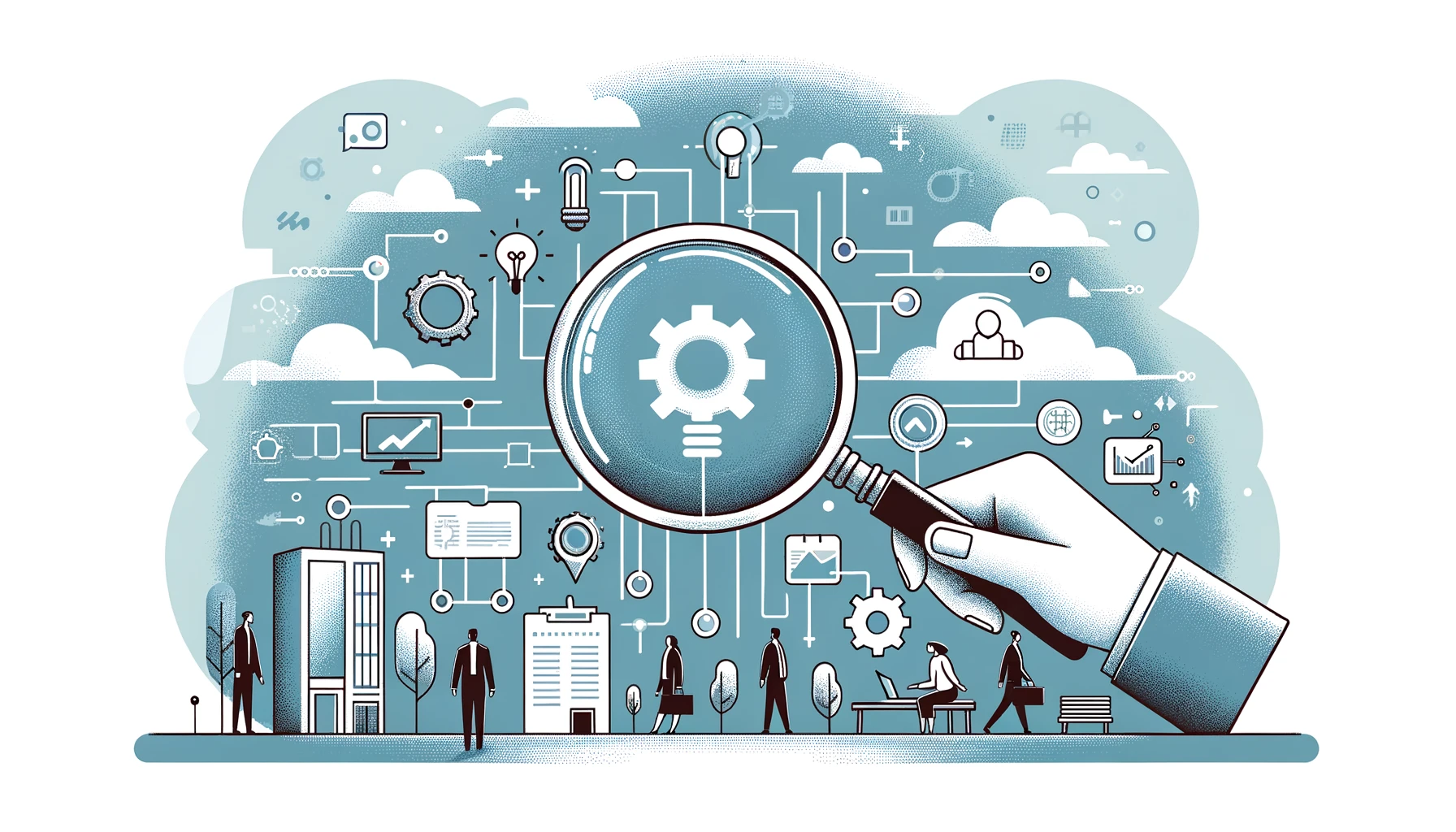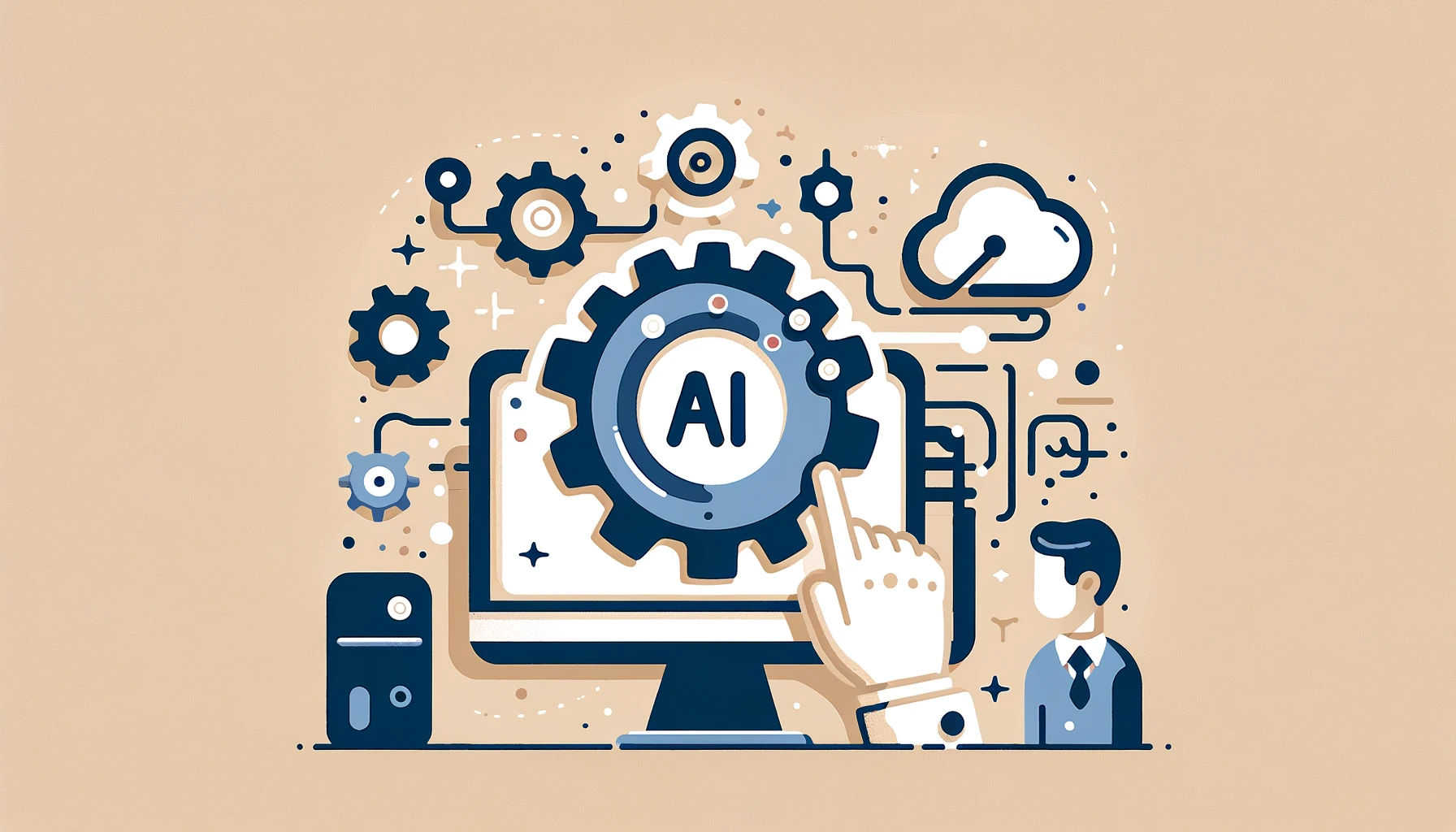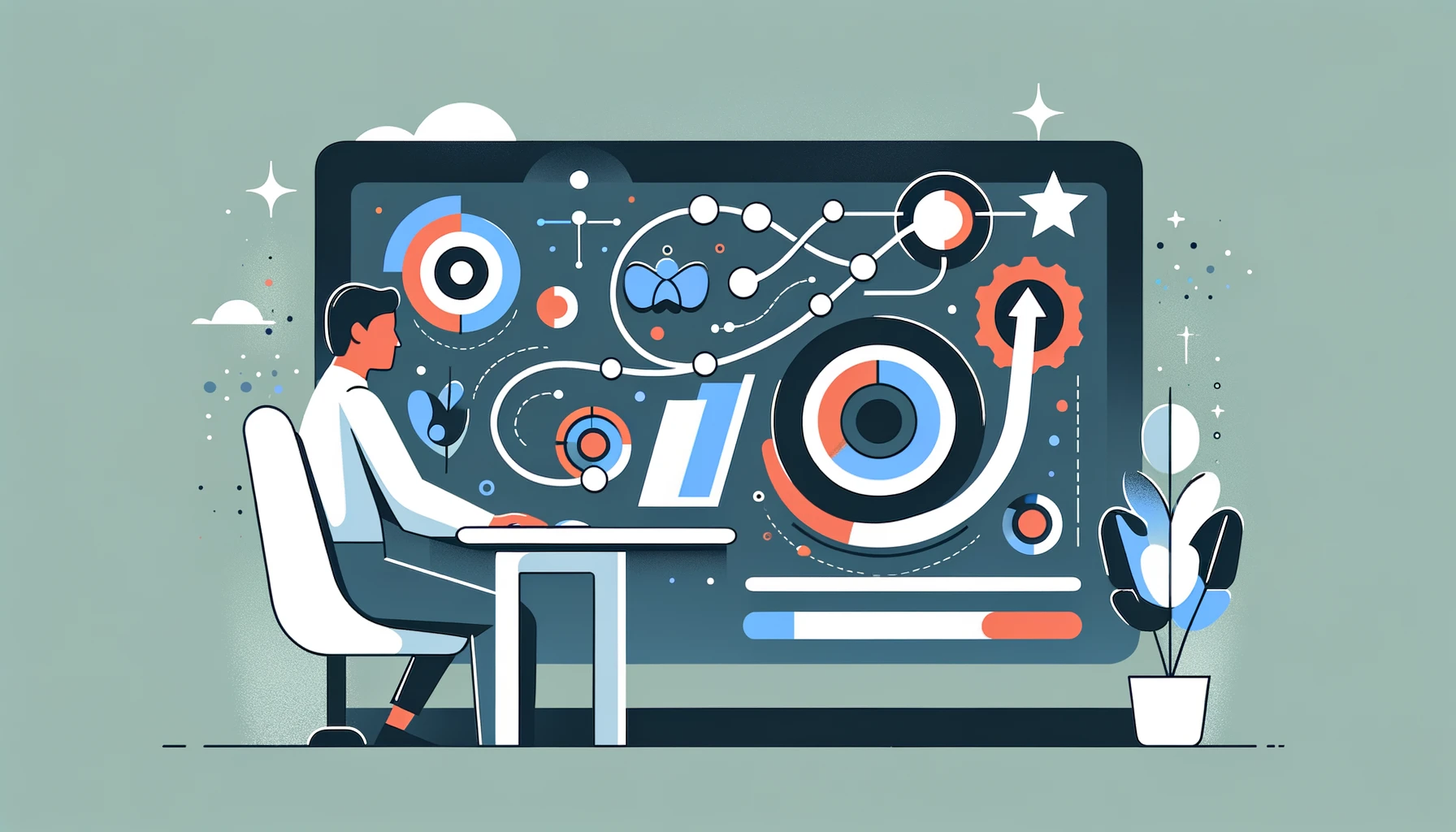AI Tools for Business: Transforming Customer Dynamics

Discover top AI Tools for Business to boost efficiency and drive growth. Explore AI solutions tailored for success in a digital world.
Discovering AI Tools for Business: A New CRM Era
In the era of digital transformation, businesses are constantly on the lookout for the next big thing to gain a competitive edge. AI tools for business are emerging as key players in this arena, particularly in the realm of Customer Relationship Management (CRM).
Artificial Intelligence (AI) offers a new way to understand and engage with customers. It provides insights into customer behavior, predicts future trends, and automates repetitive tasks, thereby enhancing efficiency and customer experience.
Consider a company that leverages AI to analyze customer data. Through advanced algorithms, AI can identify patterns and trends in the data. This information can then be used to predict customer behavior, enabling the company to anticipate and fulfil customer needs more effectively.
AI tools also play a significant role in automating tasks. For instance, AI can automate responses to common customer queries, freeing up time for customer service representatives to address more complex issues. This not only improves efficiency but also enhances customer satisfaction.
Here are the key benefits of AI tools for business in CRM:
-
Enhanced customer experience: AI can predict customer behavior, enabling businesses to offer personalized services and products.
-
Increased efficiency: AI can automate repetitive tasks, allowing employees to focus on more complex issues.
-
Improved decision making: AI provides valuable insights into customer behavior, assisting businesses in making informed decisions.
AI tools for business are revolutionizing CRM, paving the way for a new era of customer engagement. By leveraging AI, businesses can enhance customer experience, improve efficiency, and make better decisions.
As we move into this new era, it’s crucial for businesses to embrace AI tools. These tools not only offer a competitive edge but also pave the way for a more efficient and customer-centric business model.

In conclusion, AI tools for business are transforming CRM dynamics and the way businesses engage with their customers. As we move into this new era, businesses that embrace these tools will be well-positioned to gain a competitive edge.
| Benefits of AI Tools for Business | Impact on CRM |
|---|---|
| Enhanced Customer Experience | Improved customer satisfaction and loyalty |
| Increased Efficiency | More time for complex tasks |
| Improved Decision Making | Informed business decisions |
How AI Tools for Business Revolutionize Customer Interaction
In the rapidly evolving world of business, customer interaction has become the cornerstone of success. AI tools for business have been a game-changer in this arena. By leveraging AI, businesses can redefine their customer interaction strategies and deliver personalized experiences that meet and exceed customer expectations.
AI-powered chatbots, for instance, are capable of handling multiple customer queries simultaneously and offer instant, accurate responses. This not only reduces the response time but also enhances the customer experience. Furthermore, these AI-powered chatbots can learn from each interaction, thereby improving their performance over time.
AI tools for business also allow businesses to personalize their customer interactions. By analyzing customer data, AI can identify individual customer preferences and tailor interactions to suit these preferences. This level of personalization can significantly enhance customer satisfaction.

Here’s a closer look at how AI tools for business can revolutionize customer interaction:
-
Improved Customer Service: AI-powered chatbots can handle multiple customer queries simultaneously, offering instant, accurate responses. This not only enhances customer satisfaction but also improves efficiency.
-
Personalized Interactions: By analyzing customer data, AI can tailor interactions to suit individual customer preferences, thereby enhancing customer satisfaction.
-
Data-Driven Insights: AI tools can analyze customer data to identify trends and patterns. These insights can then be used to improve customer interactions and deliver personalized experiences.
AI tools for business offer a new avenue for businesses to engage with their customers. By leveraging AI, businesses can deliver personalized experiences, improve customer service, and gain valuable data-driven insights. As the business landscape continues to evolve, businesses that embrace these AI tools will be well-positioned to stay ahead of the curve.
In the end, it’s not just about using AI tools for business, but about how these tools are used to enhance customer interactions and deliver superior customer experiences.
Boosting Business Efficiency: The Power of AI in CRM
In a business landscape where efficiency is king, AI tools for business are making significant strides in streamlining processes and improving overall productivity. This is particularly evident in the realm of CRM, where AI is empowering businesses to automate repetitive tasks, make informed decisions, and engage with customers in a more personalized manner.
AI tools are proving to be a game-changer in CRM by automating repetitive tasks. Tasks such as data entry and report generation can be time-consuming, taking employees away from more important tasks. With AI, these tasks can be automated, increasing efficiency and freeing up valuable time for employees.

Another significant advantage of AI tools for business is their ability to provide valuable insights into customer behavior. These insights can be used to make informed decisions, ultimately improving the overall customer experience. For example, by analyzing customer data, AI can identify trends and patterns. These insights can then be used to tailor products and services to meet customer needs, thereby enhancing customer satisfaction and loyalty.
Here are some ways AI tools for business can boost efficiency in CRM:
-
Automation of repetitive tasks: Freeing up valuable time for employees to focus on more important tasks.
-
Data-driven insights: Assisting in making informed decisions, thereby improving the overall customer experience.
-
Personalization of customer interactions: Enhancing customer satisfaction and loyalty.
AI tools for business have the potential to significantly improve efficiency in CRM. By automating repetitive tasks, providing valuable insights, and personalizing customer interactions, AI is paving the way for a more efficient and customer-centric business model.

In the fast-paced world of business, staying ahead of the curve is crucial. AI tools for business are empowering businesses to do just that, transforming the way they engage with their customers and conduct their operations. By embracing AI, businesses can enhance efficiency, improve customer experience, and gain a competitive edge.
| Impact of AI Tools for Business on CRM | Result |
|---|---|
| Automation of repetitive tasks | More time for complex tasks |
| Data-driven insights | Informed business decisions |
| Personalization of customer interactions | Improved customer satisfaction and loyalty |
Real-World Examples of AI Tools Elevating Business Success
AI tools for business are not just a buzzword but a reality that is already transforming various industries. Let’s explore some real-world examples of how AI is elevating business success.
In the retail sector, AI is being used to predict customer behavior and personalize shopping experiences. For instance, a global fashion retailer utilized AI to analyze customer data and identify trends. The insights gained from this analysis were used to tailor products and services to meet customer preferences, resulting in a significant increase in customer satisfaction and loyalty.

In the healthcare sector, AI tools are streamlining processes and improving patient care. A leading hospital implemented AI to automate repetitive tasks such as appointment scheduling and patient data entry. This not only increased efficiency but also allowed healthcare professionals to focus on more complex tasks, thereby enhancing patient care.
Key Benefits Observed:
- Increased Efficiency: Automation of repetitive tasks freed up time for healthcare professionals.
- Improved Patient Care: Professionals were able to focus more on patient care, leading to improved patient satisfaction.
In the finance sector, AI is revolutionizing decision making. A renowned bank utilized AI to analyze customer data and provide valuable insights. These insights were used to make informed decisions, leading to improved customer service and increased customer loyalty.

These real-world examples highlight the transformative power of AI tools for business. By leveraging AI, businesses across various sectors are enhancing customer experiences, improving efficiency, and making informed decisions. As the digital transformation continues, AI tools will play an increasingly important role in business success.
| Sector | AI Implementation | Result |
|---|---|---|
| Retail | Personalized Shopping Experiences | Increased Customer Satisfaction and Loyalty |
| Healthcare | Automation of Repetitive Tasks | Increased Efficiency and Improved Patient Care |
| Finance | Data-Driven Decision Making | Improved Customer Service and Increased Customer Loyalty |
As we delve deeper into the digital age, it’s clear that AI tools for business are more than just a trend. They’re a game-changer, transforming the way businesses operate and engage with their customers. So, whether you’re in retail, healthcare, finance, or any other sector, it’s time to embrace AI and prepare for a more efficient and customer-centric future.
Getting Started with AI Tools: Enhancing Your CRM Strategy
Implementing AI tools for business in your CRM strategy doesn’t have to be a daunting task. The process can be broken down into manageable steps that can lead to significant benefits for your business.
The first step is understanding your business needs. What tasks are currently taking up too much time? Where are the bottlenecks in your customer service? Identifying these areas will help you determine where AI can be most beneficial.

Next, consider the AI tools that are available and how they can address your needs. For instance, if you’re spending too much time on data entry, an AI tool that can automate this task could be a game-changer. If you’re struggling to understand customer behavior, an AI tool that can analyze customer data and provide insights could be invaluable.
Once you’ve identified the right AI tools for your business, the next step is implementation. This involves integrating the AI tools into your existing CRM system. It’s crucial to ensure that your team is trained on how to use these tools effectively.

Lastly, it’s important to monitor the performance of the AI tools and adjust as necessary. This might involve tweaking the algorithms or investing in additional training for your team.
Here’s a quick recap:
- Identify your business needs
- Consider available AI tools
- Implement the chosen AI tools
- Train your team
- Monitor performance and adjust as necessary
| Step | Action |
|---|---|
| Identify Needs | Understand where AI can be most beneficial in your business |
| Consider Tools | Explore AI tools that can address your needs |
| Implement Tools | Integrate the chosen AI tools into your CRM system |
| Train Team | Ensure your team knows how to use the AI tools effectively |
| Monitor and Adjust | Keep track of performance and make adjustments as needed |
With these steps, you can enhance your CRM strategy using AI tools for business. The result? Improved efficiency, better customer engagement, and a competitive edge in the market.
FAQs on AI Tools for Business
-
What Exactly Are AI Tools for Business? AI Tools for Business refer to software and platforms that leverage artificial intelligence to enhance various business operations. These tools can automate tasks, provide insights through data analysis, improve customer experiences, and drive decision-making.
-
How Can AI Tools Improve Business Efficiency? AI Tools streamline operations by automating routine tasks, reducing human error, and speeding up data processing. This allows teams to focus on strategic work, fostering innovation and improving overall business productivity.
-
What Are Some Examples of AI Tools Used in Business? Examples include AI-powered analytics for big data, chatbots for customer service, intelligent CRM systems, marketing automation platforms, and AI-driven supply chain management systems.
-
Do AI Tools for Business Require Technical Expertise to Implement? While some AI tools may require technical expertise, many are designed with user-friendly interfaces for easy adoption. There are also many service providers that offer implementation support for businesses.
-
Are AI Tools for Business Cost-Effective in the Long Run? Initially, implementing AI tools can be an investment, but they are generally cost-effective in the long run. They reduce labor costs, increase efficiency, and can significantly enhance revenue through improved decision-making and customer engagement.
Read more about low-code platform ozma.io
AI-Driven ERP 2024: Top Productivity Innovations
Unlock Efficiency: Top AI-Powered CRM Tools for Modern Enterprises





